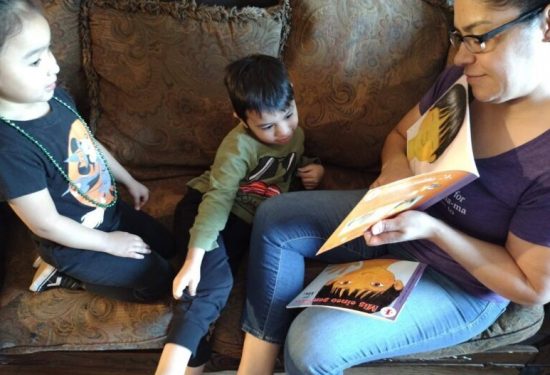The Child and Adult Care Food Program (CACFP) is a federally funded nutrition program that reimburses child care providers for the cost of meals and snacks for the children in their care. It is an important support for millions of children and caregivers, ensuring that children have access to nutritious food on a daily basis. Child nutrition and hunger is a long-standing issue. Survey data from the University of Oregon’s national RAPID survey show that pre-pandemic, hunger was an issue for 1 in 5 families with young children. The pandemic has only exacerbated this problem. In the fall of 2020, 28% of all parents surveyed reported being food insecure. Furthermore, 39% of black families, 33% of Latinx families, and 42% of families with a child with special needs reported experiencing hunger. The demographics of families experiencing higher rates of hunger overlaps with the demographics of families most likely to use home-based child care (HBCC), making HBCC access to the CACFP all the more urgent.
Home Grown recently partnered with the Urban Institute and Child Trends to take a closer look at the CACFP and opportunities for home-based child care provider participation. The two resulting reports present interesting overlaps in their findings and recommendations, including the importance of building relationships, cross-system collaboration, and centering the realities of HBCC providers and caregivers.
- The Urban Institute has posted its research brief and accompanying blog post examining providers’ barriers to participation and how state and federal policy makers can help HBCC providers access CACFP.
- Among the brief’s recommendations to federal policy makers are: supporting and incentivizing sponsor agencies to partner with community-based intermediaries to expand HBCC provider participation, including license-exempt family, friend, and neighbor (FFN) caregivers; examining equity of reimbursement levels for HBCC providers; reducing administrative burden and barriers, including language barriers; ensuring regulations and resources reflect the realities of HBCC providers.
- Recommendations for states include: identifying approval strategies for license-exempt providers so that they may also access CACFP; providing funding to intermediary organizations, such as family child care networks, to support CACFP enrollment and participation; coordination between agencies and cross-system planning.
- Child Trends produced a state-level case study (see pages 10-14) of CACFP in Louisiana, focusing on how the state connects license-exempt HBCC providers to the CACFP program. While many states have seen recent decreases in HBCC providers’ participation in the CACFP program, Louisiana has experienced increased rates of participation. The case study outlines key aspects of Louisiana’s approach to administering the CACFP program, including partnerships between the CACFP sponsor agencies and community-based organizations trusted by HBCC providers (e.g., churches, schools). The CACFP sponsors take a relationship-based approach to working with HBCC providers, including supporting license-exempt FFN providers to pass a required inspection by the fire marshal and providing support by phone to resolve questions or payment issues. The case study includes recommendations for other states to better support HBCC providers with the CACFP program, including: coordination and clarity among state and local agencies; relationship-based monitoring and support; and tailoring regulations and technical assistance to HBCC settings.
A strong theme of building relationships and tailored supports- including supports for license-exempt FFN caregivers- runs through these findings and recommendations. Both of these reports highlight the importance of building relationships between CACFP sponsor agencies and community organizations, tailoring supports to HBCC providers, and coordinating across state and local agencies.
With the confluence pandemic-relief packages, waivers, and upcoming reauthorization of the CACFP, our nation has the opportunity to address barriers to participation in CACFP and adopt policies and regulations that better support the access of HBCC providers- and particularly license-exempt FFN providers- to this program, ensuring children’s wellness and healthy development.




